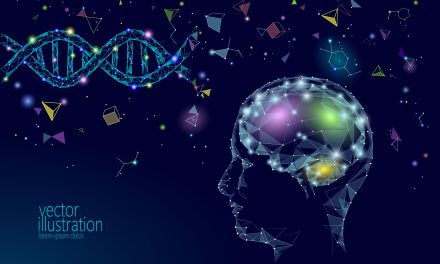Memory loss can be a concern for many, especially as they age. This article seeks to provide solutions and insights into preventing this common issue.
One of the most effective ways to combat memory loss is by maintaining an active and engaged mind through regular cognitive activities and emotional well-being. Engaging in puzzles, reading, or learning new skills can help keep the brain sharp and alert.
Emotional health plays a vital role, as stress and anxiety can contribute to forgetfulness. Additionally, exercise is not only beneficial for physical health but also for brain health, supporting cognitive functions.
Nutrition also plays a significant role in supporting brain health. Diets rich in antioxidants, such as fruits and vegetables, can protect brain cells from damage.
Fatty fish like salmon is high in omega-3 fatty acids, which are essential for maintaining memory function. Adding supplements to the diet, like those found in the Brain Solution, has been shown to help sharpen cognitive functions and resist memory decline.
Taking steps to protect the brain from aging can prevent memory issues later in life. Being mindful of habits and choices daily can have a long-term impact.
Ensuring a healthy lifestyle, a balanced diet, and maintaining emotional well-being can lead to a stronger memory over time. By adopting these practices, individuals can work towards preserving cognitive function and enhancing memory.
Key Takeaways
- Regular cognitive activities support memory health
- Nutrition significantly impacts brain function
- Lifestyle choices influence cognitive decline prevention
Understanding Memory and Brain Function
Memory and brain function are closely linked. They involve several factors that maintain cognitive abilities and influence the health of gray matter. Neurodegenerative disorders, like Alzheimer’s disease, play a big role in memory decline.
Basics of Brain Health
Brain health is crucial for maintaining strong memory function. Cognitive abilities depend on a well-nourished brain, rich in oxygen and nutrients.
Regular physical activity boosts blood flow to the brain, supporting cognitive functioning.
Eating a balanced diet also contributes to good brain health. Foods high in antioxidants, such as berries and leafy greens, help protect brain cells from damage.
Sleep is another critical factor. It aids in processing and storing memories. Without enough sleep, cognitive abilities can decline, leading to memory issues.
Factors Contributing to Memory Loss
Memory loss can occur due to various factors. Stress and anxiety can negatively affect memory, causing forgetfulness and confusion. Chronic stress increases cortisol levels, which may damage the hippocampus, a brain area responsible for memory.
Lifestyle choices also impact memory. Smoking, excessive alcohol, and a sedentary lifestyle can lead to cognitive decline. Lack of mental stimulation might contribute as well.
Engaging in activities that challenge the brain, like puzzles or learning new skills, can enhance memory function. Poor blood sugar control has been linked to memory issues, including a connection to dementia.
Neurodegenerative Disorders
Neurodegenerative disorders profoundly affect memory. Alzheimer’s disease is a leading cause of memory loss and cognitive decline. It results in the gradual loss of brain cells and affects gray matter significantly. These disorders disrupt communication between neurons, leading to memory impairment.
Early symptoms often involve forgetfulness and difficulty with routine tasks. As the condition progresses, severe memory loss occurs. Memory impairment without other cognitive decline is a common early sign. To manage these conditions, focusing on preventive measures and interventions, such as lifestyle changes and mental exercises, can be beneficial.
Lifestyle Choices and Memory Preservation
Maintaining memory can be influenced by daily habits such as sleep, diet, and exercise. These factors can significantly impact cognitive strength and overall brain health, helping to ward off memory-related problems.
Importance of Sleep
Sleep is crucial for memory and learning. During sleep, the brain processes and stores new information, strengthening connections between brain cells.
Lack of sleep can lead to difficulty in concentration and impaired memory.
Adults should aim for 7-9 hours of quality rest each night. Poor sleep is also linked to conditions such as obesity, diabetes, and heart disease, which can negatively affect brain health.
Establishing a regular sleep schedule and creating a restful environment can bolster memory function.
Impact of Diet on Cognition
A healthy diet plays a key role in preserving cognitive abilities. The Mediterranean diet, rich in fruits, vegetables, fatty fish, and olive oil, is associated with better brain health. These foods contain antioxidants and healthy fats that support brain function.
Reducing consumption of processed foods and sugar can help protect against cognitive decline. This diet may also reduce the risk of stroke and other heart-related issues, which can affect cognitive performance.
Exercise and Cognitive Health
Regular physical activity enhances memory and supports overall mental well-being. Exercise increases blood flow to the brain, encouraging the growth of new cells and connections.
Activities like walking, swimming, or cycling help maintain a healthy weight and reduce risks of health issues such as obesity and diabetes. These conditions can impact brain function and lead to cognitive problems.
Incorporating at least 150 minutes of moderate exercise each week can benefit memory and reduce the likelihood of memory loss. Additionally, physical activity may lower the risk of several mental health conditions.
Nutritional Supplements and Cognitive Function
Exploring nutritional supplements can be vital in supporting cognitive health. Key elements include vitamins, minerals, omega-3 fatty acids, and antioxidants that help maintain brain function and potentially ward off memory decline.
Essential Vitamins and Minerals
Vitamins like B12 play a critical role in maintaining nerve health and cognitive function. Deficiencies in vitamin B12 can lead to memory problems.
Zinc, magnesium, and iron are essential minerals influencing brain health. Zinc contributes to neurotransmitter function, magnesium supports nerve signaling, and iron is crucial for cognitive development. Ensuring adequate levels of these vitamins and minerals may help sustain memory and cognitive ability, especially in older adults.
Omega-3 Fatty Acids and Brain Enhancement
Omega-3 fatty acids, particularly EPA, are vital for brain health. These fatty acids support neuronal function and protect against cognitive decline.
Studies suggest that omega-3s may improve memory and cognitive function, especially in aging populations. Foods like fish and flaxseeds, or using supplements, provide these beneficial compounds, which might enhance brain resilience and function.
Role of Antioxidants
Antioxidants protect the brain from oxidative stress, which can impair cognitive functions. Flavonoids, found in fruits and vegetables, are a type of antioxidant that can support memory and learning.
By reducing free radicals in the brain, antioxidants help maintain cognitive health. Introducing foods rich in flavonoids to the diet or considering antioxidant supplements can be beneficial for sustained brain function and memory retention.
Emotional Well-Being and Memory Support
Emotional well-being is closely connected to the health of the brain and memory functions. Managing stress, combating depression, and maintaining a positive mood can be critical in supporting memory and cognitive health.
Managing Stress
Reducing stress is vital for preventing memory loss. Chronic stress might affect parts of the brain involved in memory, such as the hippocampus.
Engaging in activities that lower stress levels is important. Techniques like mindfulness meditation and yoga are effective in managing stress, and they support cognitive health by stimulating brain regions responsible for memory.
Practices that encourage relaxation, such as deep breathing, can also help lower stress hormones that negatively impact memory retention. Creating a consistent routine with these practices helps individuals maintain emotional balance.
Combating Depression
Depression can impair memory, making it crucial to address this mental health issue. Behavioral therapy and medication are common approaches to treating depression, and both have shown benefits for memory improvement.
Regular physical activity is beneficial as it boosts the production of endorphins, chemicals in the brain that reduce pain and trigger positive feelings, which may improve memory retention.
Social connections also play a role in combating depression. Positive social interactions reduce feelings of loneliness and foster a sense of belonging, ultimately benefiting memory and mental health.
Positive Mood and Recall
A positive mood enhances memory recall. Individuals who maintain a cheerful outlook tend to engage more actively with their surroundings, leading to stronger and more vivid memories.
Activities like listening to uplifting music or spending time in nature can elevate mood and potentially boost memory. Mental exercises such as puzzles and games not only provoke happiness but also stimulate brain activity associated with memory recall.
Laughing and sharing joyful experiences with others can further improve mood, reinforcing memory functions and overall cognitive health.
Cognitive Activities and Enhancements
Improving memory and cognitive skills involves engaging in activities that challenge the brain. Incorporating brain games and mindfulness practices like meditation can lead to significant cognitive benefits.
Brain Games and Mental Exercise
Brain games can play a crucial role in enhancing cognitive skills. These games often include puzzles, crosswords, and number games like Sudoku. They help improve visual perception, problem-solving, and language skills.
Such activities challenge the brain, promoting neural plasticity.
Research indicates that consistent practice with these games can slow down cognitive decline. Participants in studies have shown improvements in tasks that require quick thinking and memory challenges.
Online platforms offer a wide range of games tailored to different skill levels, making it easy for anyone to engage and improve their mental stamina.
Mindfulness and Meditation
Mindfulness and meditation are powerful techniques for cognitive enhancement. These practices focus on maintaining awareness and concentration, which can reduce stress levels and improve memory retention.
Meditation involves deep breathing and mental focus, helping clear the mind and enhance attention. Studies have shown that regular meditation can lead to better emotional regulation and cognitive flexibility.
Classes and apps are available, offering guided sessions that make it accessible for beginners to start benefiting from meditation.
Both brain games and meditation serve as effective tools for maintaining cognitive health, especially as one ages.
Preventive Measures Against Cognitive Decline
Preventing cognitive decline involves several key strategies. Regular health check-ups, minimizing risk factors, and early detection of certain medical conditions play crucial roles. These measures can help maintain cognitive function and potentially reduce the impact of diseases like Alzheimer’s and mild cognitive impairment.
Regular Health Check-ups
Regular health check-ups are vital for monitoring and managing conditions that can affect cognitive health. Visits to healthcare providers like the Mayo Clinic are important to keep track of one’s overall health.
These check-ups often include tests for blood pressure, cholesterol levels, and blood sugar, which are important health indicators.
Managing high blood pressure and high cholesterol through medication or lifestyle changes can prevent blood clots, which might contribute to brain health issues.
Blood tests and cognitive assessments can detect early signs of memory loss or mild cognitive impairment. By maintaining regular appointments, individuals can ensure that any potential problems are identified and treated quickly.
Avoiding Risk Factors
Avoiding known risk factors is crucial for protecting cognitive health. Smoking and excessive alcohol consumption are major contributors to cognitive decline.
Quitting smoking and limiting alcohol intake can reduce these risks. A diet rich in fruits, vegetables, and whole grains can support brain health. Regular exercise is another important factor.
Staying physically active improves blood flow to the brain and reduces the risk of high blood pressure and diabetes.
Social engagement and intellectual activities, like reading or playing games, keep the brain active. Maintaining an active social life can also provide emotional and cognitive benefits.
By addressing these risk factors, individuals can greatly improve their chances of maintaining good cognitive health.
Early Detection of Medical Conditions
Early detection and management of medical conditions play a significant role in preventing cognitive decline. Conditions like diabetes, high blood pressure, and heart disease are linked to cognitive issues if left untreated.
Regular screenings for these conditions allow early intervention.
If diagnosed with conditions like mild cognitive impairment, starting treatment early can slow down progression. Medications might be prescribed to manage symptoms.
Awareness about these conditions can prompt individuals to seek medical advice if they notice any memory changes.
Early diagnosis and treatment are key to limiting their impact on cognitive health. By focusing on early detection, individuals can better manage their health and prevent further decline.
Dietary Choices for Brain Health
Eating the right foods can improve brain health and help prevent memory loss. Several foods have specific nutrients that support cognitive function and protect the brain from aging.
Incorporating Brain-Boosting Foods
Blueberries are a standout food for brain health. They contain anthocyanins, which help fight oxidative stress.
Walnuts and other nuts are rich in antioxidants and healthy fats that support brain wellness.
Turmeric, with its active ingredient curcumin, offers anti-inflammatory benefits. Studies show it may help improve memory and encourage new cell growth.
Dark chocolate, in moderation, is another tasty option. Its caffeine and antioxidants enhance brain function and alertness.
Olive oil is a staple in many healthy diets. Rich in monounsaturated fats, it promotes overall brain health.
These foods can be easily integrated into meals for nutritional benefits.
Understanding Nutritional Profiles
It’s important to focus on the nutrients in each food.
Nutrients like healthy fats in nuts and olive oil support the brain’s structure and function. Anthocyanins in blueberries have been linked to better cognitive performance and a reduced risk of dementia.
The curcumin in turmeric can cross the blood-brain barrier and may reduce symptoms of depression and Alzheimer’s.
Foods high in antioxidants, like nuts and dark chocolate, reduce oxidative stress, which can damage brain cells.
Maintaining stable blood sugar levels is crucial, as spikes can harm the brain.
Including a variety of these foods ensures a range of nutrients to keep the mind sharp.
Balancing food choices with nutrients helps prevent memory loss effectively.
Frequently Asked Questions
Memory loss can be influenced by several factors, such as aging or lifestyle changes. Several strategies and treatments can help improve concentration and memory skills.
How can one prevent memory loss as they age?
Regular mental exercises, like puzzles, help maintain brain activity.
A balanced diet, rich in omega-3 fatty acids, supports brain health. Physical exercise also boosts blood flow to the brain, aiding memory function.
What strategies can improve memory and concentration?
Organizing information in categories improves recall. Using mnemonic devices and visualization enhances memory retention.
Adequate sleep and stress management are crucial for maintaining focus and concentration.
What are the common causes of memory loss and forgetfulness?
Aging is a natural cause of memory decline. Stress and anxiety can also affect memory.
Certain health conditions, like dementia, and medication side effects might lead to memory problems.
Are there effective treatments for age-related memory loss?
Cognitive training programs can slow cognitive decline. Some medications prescribed by doctors may help manage symptoms of memory-related disorders.
Therapy and support groups provide emotional support and coping strategies.
What approaches aid memory improvement for academic studies?
Regular review and self-testing improve retention of study material. Breaking information into smaller parts helps easier memorization.
Using various sensory inputs, like reading aloud or watching videos, can enrich the learning experience.
Can lifestyle changes have an impact on preventing memory loss?
Adopting healthy habits like regular exercise and a nutritious diet impacts brain health positively.
Reducing alcohol consumption and quitting smoking also contribute to better memory retention.
Staying socially engaged and continuing learning activities support brain function.


















